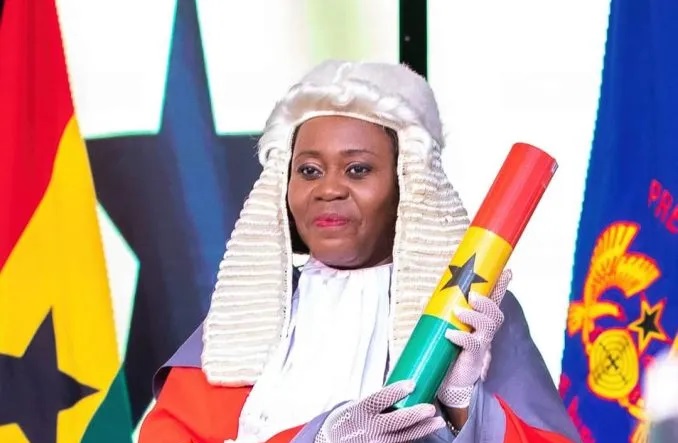President John Mahama has triggered constitutional processes on three petitions seeking the removal of Chief Justice Gertrude Sackey Torkornoo. A sta
President John Mahama has triggered constitutional processes on three petitions seeking the removal of Chief Justice Gertrude Sackey Torkornoo.
A statement from Minister for Government Communications, Felix Kwakye Ofosu, confirmed that the petitions have been forwarded to the Council of State in accordance with Article 146 of the 1992 Constitution.
While the specific details of the petitions remain undisclosed, this marks the beginning of a constitutional process that could have significant implications for Ghana’s judiciary.
The Council of State is expected to review the petitions and advise the President on the appropriate course of action.
Under Article 146, the removal of a Chief Justice follows a strict constitutional procedure.
Article 146 – Removal Of Justices Of Superior Courts And Chairmen Of Regional Tribunals
(6) Where the petition is for the removal of the Chief Justice, the President shall, acting in consultation with the Council of State, appoint a committee consisting of two Justices of the Supreme Court, one of whom shall be appointed chairman by the President, and three other persons who are not members of the Council of State, nor members of Parliament, nor lawyers.
(7) The committee appointed under clause (6) of this article shall inquire into the petition and recommend to the President whether the Chief Justice ought to be removed from office.
(8) All proceedings under this article shall be held in camera, and the Justice or Chairman against whom the petition is made is entitled to be heard in his defence by himself or by a lawyer or other expert of his choice.
(9) The President shall, in each case, act in accordance with the recommendations of the committee.
(10) Where a petition has been referred to a committee under this article, the President may-
(a) in the case of the Chief Justice, acting in accordance with the advice of the Council of State, by warrant signed by him, suspend the Chief Justice;
(11) The President may, at any time, revoke a suspension under this article.

COMMENTS